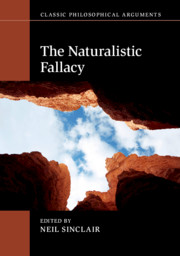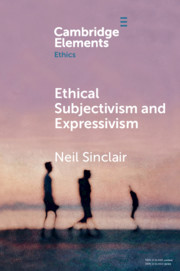The Naturalistic Fallacy
At the turn of the twentieth century, G. E. Moore contemptuously dismissed most previous 'ethical systems' for committing the 'Naturalistic Fallacy'. This fallacy - which has been variously understood, but has almost always been seen as something to avoid - was perhaps the greatest structuring force on subsequent ethical theorising. To a large extent, to understand the Fallacy is to understand contemporary ethics. This volume aims to provide that understanding. Its thematic chapters - written by a range of distinguished contributors - introduce the history, text and philosophy behind Moore's charge of fallacy and its supporting 'open question' argument. They detail how the fallacy influenced multiple traditions in ethics (including evolutionary, religious and naturalistic approaches), its connections to supposed dichotomies between 'is'/'ought' and facts/values, and its continuing relevance to our understanding of normativity. Together, the chapters provide a historical and opinionated introduction to contemporary ethics that will be essential for students, teachers and researchers.
- Provides a definitive history of Moore's charge of the naturalistic fallacy and a guide to the contemporary shape of metaethics
- Provides detailed textual analysis of the source text of the fallacy, its multiple interpretations and their influence
- Provides themed chapters, each assessing the influence of the fallacy on a different tradition of ethical theorising (e.g. religious ethics, evolutionary ethics) from a range of diverse perspectives
- Develops modern uses of the naturalistic fallacy, as an argumentative tool to help develop better theories of normativity, in both ethics and epistemology
Product details
December 2018Adobe eBook Reader
9781316731840
0 pages
0kg
2 b/w illus.
This ISBN is for an eBook version which is distributed on our behalf by a third party.
Table of Contents
- Introduction Neil Sinclair
- 1. The naturalistic fallacy and the history of metaethics Neil Sinclair
- 2. The naturalistic fallacy: what it is, and what it isn't Fred Feldman
- 3. The context and origin of Moore's Formulation of the Naturalistic Fallacy in Principia Ethica Consuelo Preti
- 4. No-ought-from-is, the naturalistic fallacy and the fact/value distinction: the history of a mistake Charles Pigden
- 5. Evolution and the naturalistic fallacy Michael Ruse
- 6. Motivation, recommendation, non-cognitivism and the naturalistic fallacy Mark van Roojen
- 7. Open question arguments and the irreducibility of ethical normativity William J. FitzPatrick
- 8. Should analytical descriptivists worry about the naturalistic fallacy? Susana Nuccetelli
- 9. Normativity and the naturalistic fallacy Connie S. Rosati
- 10. The naturalistic fallacy and theological ethics Christian B. Miller
- 11. The phenomenology of moral deliberation and the non-naturalistic fallacy Terry Horgan and Mark Timmons
- 12. Epistemic relativism and the naturalistic fallacy J. Adam Carter.





